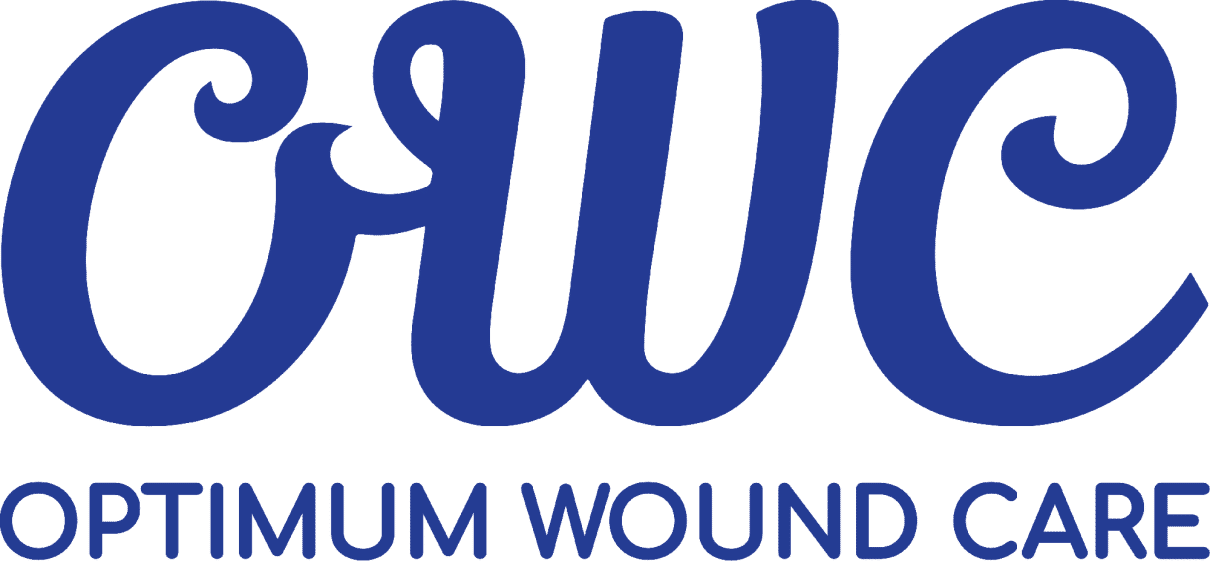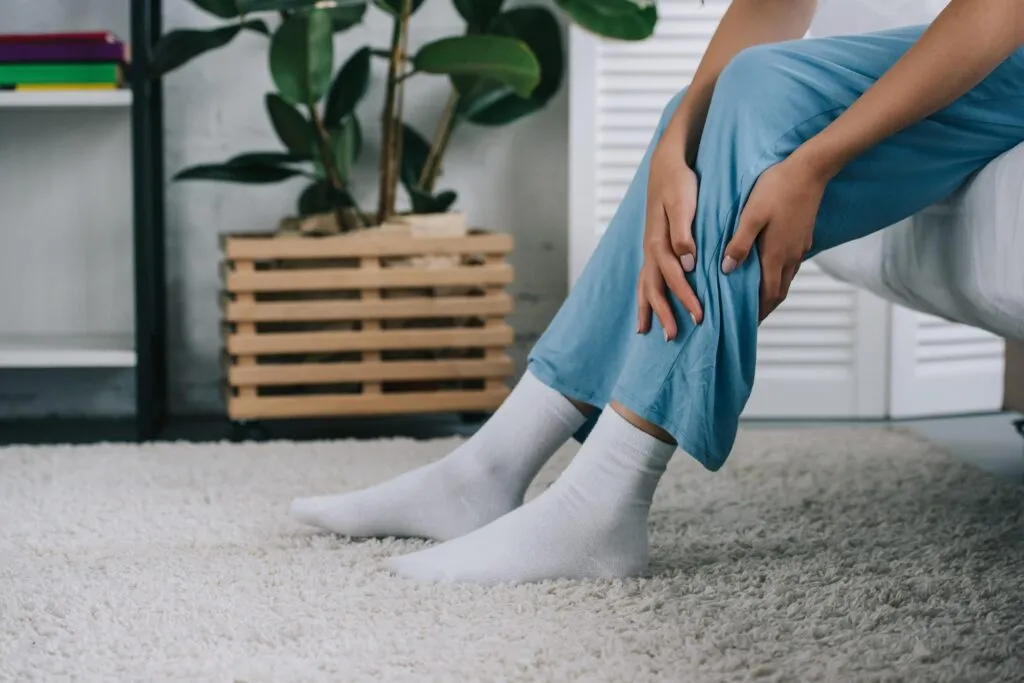How Stress and Mental Health Impact Wound Healing
You might think a wound is just skin-deep. A scrape. A cut. A surgical incision. You clean it. You cover it. You wait.
But what if healing doesn’t come?
Sometimes, it’s not about what you can see. Sometimes, the wound goes deeper—beneath the skin, into the nervous system, into your daily stress, into your mind.
And that stress? It can slow everything down.
According to NIH studies, chronic stress elevates cortisol levels, which suppresses immune function and delays tissue repair. Similarly, a Cleveland Clinic report explains how emotional health directly affects the body’s ability to heal wounds. That means your mood, mindset, and mental habits all play a part in how your skin, muscles, and tissue bounce back.
We see this every day at OWCCenter. A wound that won’t close. A foot ulcer that returns. A patient who does everything right physically, but can’t seem to heal.
It’s time we talk about the connection between stress and wound healing.
Mental Health and Recovery: Why Emotions Matter in Healing
Emotional health influences physical recovery more than most people realize.
When a person is dealing with depression, anxiety, grief, or trauma, their nervous system is constantly in a state of alert. This activates the stress response, flooding the body with hormones like cortisol and adrenaline. While these are useful in short bursts, chronic activation impairs wound healing.
How Mental Health Impacts Physical Healing:
- Cortisol suppresses immune response, leading to slower healing and increased risk of infection.
- Anxiety and insomnia disrupt the body’s natural repair cycle.
- Depression decreases motivation, which can lead to missed appointments, skipped wound care routines, and poor nutrition.
- Emotional fatigue drains the energy needed for physical recovery.
A study from the University of California found that caregivers under chronic stress healed wounds 24% slower than their low-stress counterparts.
At OWCCenter, we take this seriously. Our team uses trauma-informed care practices, ensuring patients feel emotionally safe, supported, and informed throughout their wound healing journey.
Related reading:
- The Importance of Early Pressure Injury Treatment
- Understanding Wound Debridement: What to Expect
- Overcoming Diabetic Foot Ulcers
Wound Care Tips for Managing Stress While Healing
Your mindset can shape your outcome. The good news? You can take steps to support your mental health while recovering from wounds.
Here are five practical, evidence-based tips:
5 Ways to Reduce Stress and Improve Wound Healing:
- Practice Mindfulness Meditation
- Even 10 minutes a day can significantly reduce stress and improve sleep quality.
- Try apps like Headspace or Insight Timer.
- Fuel Your Body and Mind
- Eat foods rich in protein, zinc, vitamin C, and omega-3 fatty acids.
- Avoid alcohol, sugar, and heavily processed foods.
- Get Moving (Gently)
- As tolerated, walking or light stretching can release endorphins and boost circulation.
- Always follow your provider’s activity guidelines.
- Prioritize Sleep
- Healing happens during sleep. Create a nighttime routine to signal rest.
- Avoid screens, heavy meals, or stimulating conversations an hour before bed.
- Talk to Someone
- Whether it’s a licensed therapist or a support group, verbalizing emotions lightens the load.
- Many mental health services are now available via telehealth.
A report by the CDC shows that proactive coping mechanisms can improve health outcomes in patients with chronic illnesses.
Need guidance? Our OWC Center care team includes referrals to counselors, integrative specialists, and teletherapy options.
How to Spot When Stress Is Delaying Your Healing
Sometimes, the signs aren’t obvious. You think the wound is just “taking time.” But often, hidden stress is at the root of delayed recovery.
Common Signs That Stress Is Impacting Healing:
- Wound still open or showing no progress after 2–3 weeks
- Recurrent infections, inflammation, or discharge
- Unexplained fatigue or disrupted sleep
- Digestive issues, including poor appetite or nausea
- Feeling more anxious or easily irritated
Behavioral Clues:
- Avoiding wound care tasks
- Canceling follow-ups or therapy appointments
- Feeling hopeless or overwhelmed about your recovery
If you recognize these symptoms, you’re not alone. At OWC Center, we listen closely to what your body and mind are telling us.
We also recommend a full wound assessment that includes a review of psychosocial and emotional health.
Integrating Mental Health Into Wound Healing at OWC Center

At OWC Center, we believe that the best wound care goes beyond bandages and creams. It involves heart, humanity, and healing from the inside out.
Our Holistic Wound Healing Approach:
- Compassionate Consults
- Every patient is heard. No symptom is dismissed. No concern is too small.
- Emotional Screening at Intake
- We ask gentle questions about your sleep, stress, support, and mental wellness.
- Collaborative Care Network
- We connect you with mental health providers and support groups when needed.
- Calm Healing Spaces
- Our clinic environment is intentionally designed to reduce anxiety and support safety.
- Telehealth Options
- For patients who feel overwhelmed leaving home, we offer virtual care and emotional check-ins.
We also provide printed wound care tips and digital resources tailored to managing stress during recovery.
Explore how our advanced wound care integrates science, compassion, and emotional wellness.
Every wound tells a story—one that goes beyond skin and stitches. For many patients, the slow pace of healing isn’t just a medical issue—it’s emotional. The stress of daily life, the weight of anxiety, or the quiet persistence of depression can quietly interfere with the body’s ability to recover. It’s not always about the treatment plan—it’s about how a person is really feeling, thinking, and coping through that plan.
That’s why wound care must be more than clinical. At OWC Center, healing starts with understanding. We look at the whole picture: the nutrition, the rest, the emotional well-being, the fear behind the bandage. Because when you care for the patient, not just the wound, the results change.
Some wounds don’t heal until the stress does.
And sometimes, the most powerful medicine is being truly seen.
Key Takeaways
1. Stress Isn’t Just Mental—It Slows Physical Healing, Too
When stress becomes chronic, it raises cortisol levels, disrupts immune function, and slows your body’s natural healing response. If your wound isn’t healing as expected, your emotional well-being could be a hidden factor.
2. Your Mindset and Mental Health Are Part of Your Treatment Plan
Anxiety, depression, and fatigue can all delay wound closure by affecting motivation, sleep, and nutrition. Addressing emotional health is just as vital as tending to the wound itself.
3. Recognizing the Signs of Stress-Delayed Healing Can Save You Time and Pain
If your wound hasn’t improved in a few weeks or you’re feeling increasingly anxious or withdrawn, it’s time to act. Early intervention—including emotional screening—can help you heal faster and more fully.
4. Small Mental Health Shifts Can Create Big Healing Outcomes
Practicing mindfulness, eating well, sleeping regularly, and talking through your emotions aren’t “extras”—they’re essentials. Your body and mind are connected, and both need care to recover.
5. OWC Center Treats More Than Wounds—We Treat People
At OWC Center, your healing journey includes emotional safety, compassionate listening, and personalized referrals for mental health support. We’re here to help you feel whole again.
💬 5 Related Questions Answered
1. Can Stress Really Slow Down Wound Healing?
Absolutely. Chronic stress doesn’t just affect your mood—it directly impacts your immune system and your body’s ability to repair itself.
How stress disrupts healing:
- Cortisol Overload: Stress increases cortisol (the “stress hormone”), which suppresses the immune response and slows collagen production—key for closing wounds.
- Inflammation: Stress causes chronic inflammation, which can prevent wounds from progressing through normal healing stages.
- Circulation Issues: High stress can cause poor circulation, limiting oxygen and nutrient delivery to wounds.
- Delayed Cell Regeneration: Stress affects cellular turnover, prolonging the healing timeline.
2. How Does Mental Health Affect Physical Recovery from Wounds?
Mental health plays a powerful role in recovery—often just as important as physical treatment.
Mental health conditions that impact healing:
- Depression: Linked to lower immune response and reduced motivation to follow wound care protocols.
- Anxiety: Can increase cortisol levels and cause poor sleep, both of which delay healing.
- PTSD or trauma: Can trigger stress responses that make it harder for the body to regulate inflammation and immune activity.
Why it matters:
- People with untreated mental health conditions often have higher rates of wound complications, infections, or re-injury.
- Emotional distress can decrease appetite or sleep—both essential for healing.
3. What Are the Signs That Stress Is Delaying My Healing?
Sometimes, stress symptoms are subtle—but the impact can be significant if ignored.
Watch for these signs:
- Wounds that aren’t closing after 2–3 weeks
- Recurrent infections or inflammation
- Disrupted sleep patterns or fatigue
- Loss of appetite or digestive changes
- Increased worry or irritability related to the wound
Other indicators:
- Lack of motivation to attend appointments or follow care instructions
- Feeling overwhelmed by daily tasks or wound maintenance
📍Tip: Speak to your wound care provider if you notice any of these signs—they can help refer you to additional mental health support.
🔗 Book an Initial Wound Assessment to explore both medical and emotional barriers to healing.
4. What Can I Do to Improve My Mental Health During Recovery?
Supporting your emotional well-being is a crucial (and often overlooked) part of wound recovery.
Here’s what you can do:
- 🧘♂️ Practice Mindfulness: Breathing exercises or guided meditation can reduce cortisol levels and calm inflammation.
- 🧠 Talk It Out: Speaking with a therapist or joining a support group can provide emotional relief and encouragement.
- 🛏️ Prioritize Sleep: Rest is when your body repairs tissues. Try setting a regular sleep schedule.
- 🥗 Eat Well: Foods rich in protein, omega-3s, and antioxidants support both brain and wound healing.
- 🚶♀️ Stay Gently Active: Movement improves circulation and mood—just follow your provider’s guidance.
5. How Does OWCCenter Integrate Mental Health Support in Wound Care?
At OWCCenter, we believe wound healing isn’t just skin-deep—it’s about treating the whole person.
Here’s how we support mental health alongside physical care:
- Compassionate Consultations: We listen, without judgment. Our staff is trained to recognize signs of emotional distress.
- Patient Education: We help you understand your healing process to reduce anxiety and build confidence.
- Referral Network: We coordinate with mental health professionals if additional support is needed.
- Holistic Healing Environment: Our calming, respectful approach reduces patient stress during visits.
- Telehealth Options: For patients with anxiety or mobility issues, we offer remote care when possible.
📍Tip: A compassionate care team can help patients feel more in control—and more hopeful.
🔗 Learn more about our Advanced Wound Care Approach.




